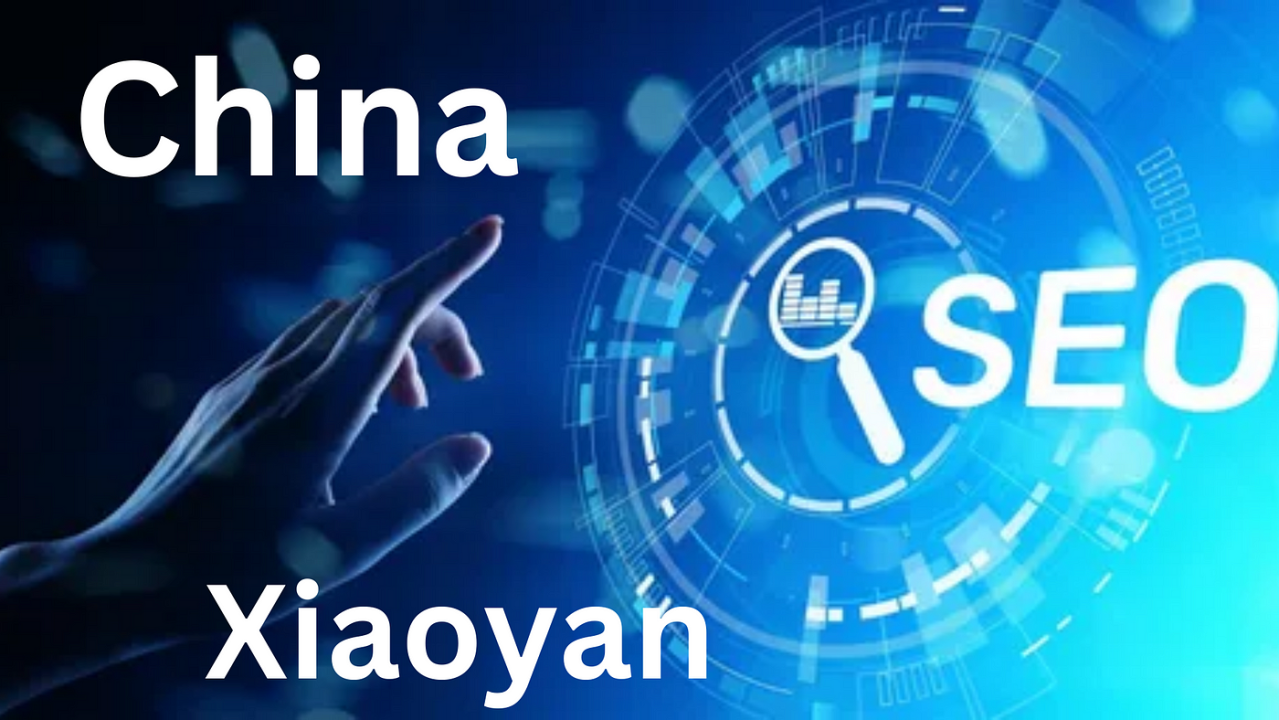In the fast-paced digital landscape, where information is just a click away, businesses strive to enhance their online visibility. For those venturing into the vast market of China, understanding the nuances of SEO (Search Engine Optimization) becomes crucial. One name that has been gaining prominence in this context is “China SEO Xiaoyan.” In this comprehensive exploration, we will delve into the intricacies of SEO in China, with a special focus on Xiaoyan, uncovering the strategies and tactics essential for success in this unique digital terrain.
The Dynamics of SEO in China
China, with its immense population and burgeoning digital ecosystem, presents both challenges and opportunities for businesses aiming to establish a robust online presence. Unlike Western search engines dominated by Google, China has its own digital giants, most notably Baidu. Navigating this landscape requires a tailored approach, and this is where China SEO Xiaoyan comes into play.
Xiaoyan: A Rising Star in the SEO Realm
Xiaoyan, in the context of Chinese SEO, refers to the nuanced strategies employed to optimize content for Baidu, the leading search engine in China. With an intricate understanding of Baidu’s algorithms, Xiaoyan focuses on the specific factors that contribute to higher search rankings in the Chinese market. From keyword selection to content localization, Xiaoyan encompasses a wide array of techniques.
Cracking the Baidu Code: Key Components of Xiaoyan SEO
- Keyword Research and Localization In the realm of Xiaoyan SEO, meticulous keyword research is paramount. Understanding the terms and phrases that resonate with the Chinese audience is the first step towards effective optimization. Localization of keywords involves not just translation, but a deep cultural understanding to ensure relevance.
- Content Optimization for Baidu Crafting content that aligns with Baidu’s preferences is a crucial aspect of Xiaoyan SEO. Baidu favors longer, comprehensive content with a focus on user experience. Understanding the importance of multimedia elements and mobile optimization is integral to success.
- Backlink Strategies for Baidu Baidu places significant emphasis on the quality and relevance of backlinks. Developing a robust backlink profile that adheres to Baidu’s guidelines is vital. Xiaoyan SEO involves strategic link-building efforts tailored to the Chinese digital landscape.
- Social Media Integration in Xiaoyan SEO Social media platforms unique to China, such as WeChat and Weibo, play a pivotal role in Xiaoyan SEO. Integrating these platforms into the overall SEO strategy enhances brand visibility and credibility.
- Mobile-First Approach in Xiaoyan SEO Given the prevalence of mobile usage in China, a mobile-first approach is non-negotiable. Xiaoyan SEO involves optimizing websites and content for seamless mobile experiences, considering factors like page load speed and mobile-friendly design.
- Navigating Baidu Webmaster Tools Baidu Webmaster Tools is a treasure trove for those engaging in Xiaoyan SEO. Understanding and utilizing the features offered by this platform is essential for monitoring website performance, identifying issues, and ensuring optimal indexing.
- E-commerce and Xiaoyan SEO E-commerce is booming in China, and Xiaoyan SEO strategies must align with the unique demands of online retail. Optimizing product listings, leveraging e-commerce platforms, and understanding user behavior are critical components.
- Cultural Sensitivity in Xiaoyan SEO Cultural nuances are integral to Xiaoyan SEO success. Understanding the preferences, values, and sensitivities of the Chinese audience is vital for crafting content that resonates and fosters a connection.
- Legal and Regulatory Compliance Navigating China’s stringent internet regulations is a prerequisite for Xiaoyan SEO practitioners. Adhering to legal and regulatory guidelines ensures a smooth online presence without facing penalties or restrictions.
- Data Analysis and Continuous Optimization Xiaoyan SEO is an evolving process. Regular data analysis and performance monitoring are essential for identifying trends, understanding user behavior, and making informed optimizations to stay ahead in the competitive landscape.
Frequently Asked Questions (FAQs)
What makes Xiaoyan SEO different from traditional SEO?
Xiaoyan SEO is tailored specifically for the Chinese market, considering the unique algorithms and preferences of Baidu. It involves cultural sensitivity, language localization, and strategies aligned with the Chinese digital landscape.
How crucial is social media in Xiaoyan SEO?
Social media, especially platforms like WeChat and Weibo, is integral to Xiaoyan SEO. It not only enhances brand visibility but also contributes to backlink strategies and user engagement.
What role does mobile optimization play in Xiaoyan SEO?
Given the prevalence of mobile usage in China, a mobile-first approach is critical in Xiaoyan SEO. It involves optimizing websites and content to provide seamless experiences on mobile devices.
How can businesses leverage Baidu Webmaster Tools in Xiaoyan SEO?
Baidu Webmaster Tools offers valuable insights and tools for monitoring website performance in the Chinese digital landscape. Businesses can utilize it for indexing, issue identification, and overall SEO optimization.
Is cultural sensitivity important in Xiaoyan SEO?
Absolutely. Cultural nuances play a significant role in Xiaoyan SEO success. Understanding the preferences, values, and sensitivities of the Chinese audience is vital for crafting resonant content.
How does Xiaoyan SEO adapt to the regulatory landscape in China?
Navigating China’s internet regulations is crucial in Xiaoyan SEO. Compliance with legal and regulatory guidelines ensures a smooth online presence without facing penalties or restrictions.
Why is e-commerce optimization essential in Xiaoyan SEO?
With the booming e-commerce market in China, optimizing for online retail is vital in Xiaoyan SEO. This includes product listings, leveraging e-commerce platforms, and understanding user behavior.
What data analysis tools are recommended for Xiaoyan SEO?
Businesses engaging in Xiaoyan SEO can benefit from tools like Baidu Analytics and other data analysis platforms to monitor performance, identify trends, and make informed optimizations.
How important are backlinks in Xiaoyan SEO?
Backlinks hold significant importance in Xiaoyan SEO. Baidu emphasizes the quality and relevance of backlinks, making strategic link-building efforts essential for improved search rankings.
As technology and user behavior continue to evolve, the landscape of Xiaoyan SEO is not static. Businesses must stay attuned to emerging trends and considerations to maintain a competitive edge in the ever-changing digital environment of China.
AI and Xiaoyan SEO: Embracing Smart Algorithms
Artificial Intelligence (AI) is reshaping the digital marketing landscape globally, and China is no exception. In Xiaoyan SEO, businesses can leverage AI to analyze user behavior, predict trends, and tailor content for maximum impact. Understanding and integrating AI into SEO strategies will be crucial for staying ahead.
Voice Search Optimization in Xiaoyan SEO
With the rise of voice-activated devices and virtual assistants, voice search is becoming increasingly prevalent. Xiaoyan SEO strategies must adapt to accommodate voice search queries, emphasizing natural language and conversational content to align with how users interact with voice-enabled devices.
User Experience (UX) as a Ranking Factor in Baidu
User experience has always been important, but search engines, including Baidu, are placing even greater emphasis on it as a ranking factor. Xiaoyan SEO must prioritize mobile optimization, fast page loading, and overall user-friendly interfaces to meet the demands of Baidu’s evolving algorithms.
Blockchain Technology and Trust in Xiaoyan SEO
As concerns about online security and trust continue to grow, blockchain technology is emerging as a potential solution. Xiaoyan SEO strategies may increasingly involve integrating blockchain to ensure transparency and trustworthiness in online transactions and information sharing.
Video Content Dominance in Xiaoyan SEO
Video content has proven to be a powerful engagement tool globally, and in China, it’s no different. Xiaoyan SEO strategies should prioritize video content creation and optimization, tapping into the popularity of platforms like Douyin and leveraging video for enhanced user engagement.
Personalized and Hyper-Localized Content Strategies
China’s diverse demographics and vast geographical expanse make personalized and hyper-localized content crucial in Xiaoyan SEO. Tailoring content to specific regions and demographics ensures relevance, resonating with users on a more personal level.
Understanding Generation Z in the Chinese Market
As Generation Z becomes a dominant consumer force, Xiaoyan SEO strategies must adapt to the preferences and behaviors of this tech-savvy demographic. Platforms like Kuaishou and Xiaohongshu are gaining popularity among Gen Z, requiring businesses to tailor their content accordingly.
Environmental, Social, and Governance (ESG) Considerations
ESG considerations are gaining prominence globally, and businesses engaging in Xiaoyan SEO should be mindful of environmental and social responsibilities. Aligning content and strategies with ESG principles can enhance brand reputation and appeal to socially conscious Chinese consumers.
Integration of Augmented Reality (AR) and Virtual Reality (VR)
The integration of AR and VR technologies offers exciting possibilities in Xiaoyan SEO. Businesses can explore immersive experiences and interactive content to captivate audiences and differentiate themselves in the competitive Chinese market.
Conclusion: Navigating the Future of Xiaoyan SEO
In navigating the future of Xiaoyan SEO, businesses need to be agile and adaptive. Embracing emerging technologies, staying attuned to shifting consumer behaviors, and understanding the unique dynamics of the Chinese market will be paramount. Xiaoyan SEO is not a static discipline; it’s a dynamic journey that evolves alongside the digital landscape. By embracing innovation and staying informed, businesses can continue to thrive on the Digital Silk Road of China’s online ecosystem.



